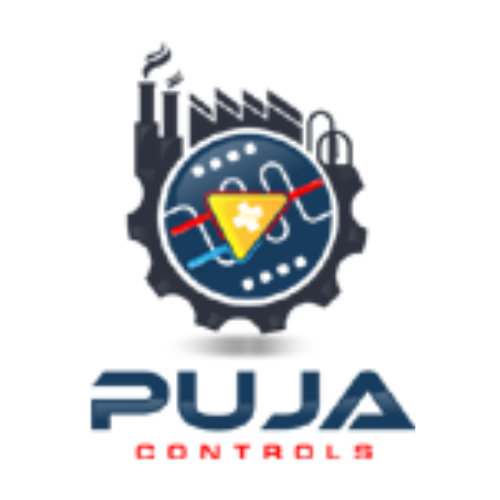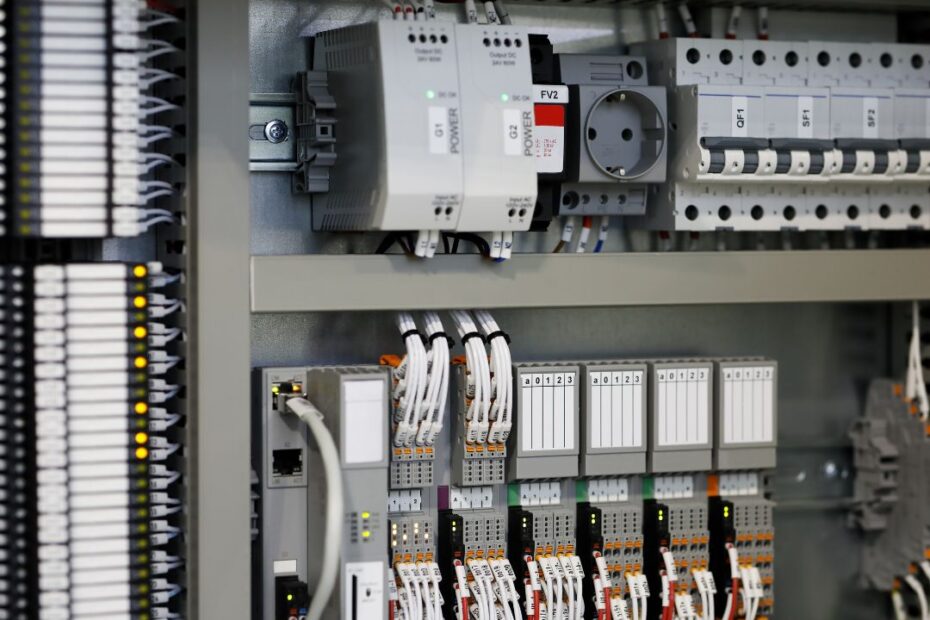In the realm of factory automation, Programmable Logic Controllers (PLCs) housed within control panels have emerged as the driving force behind a new era of efficiency, flexibility, and intelligence. This blog delves into how PLC control panels are revolutionizing factory automation, enabling seamless integration of machinery, optimizing processes, and laying the groundwork for a smarter industrial landscape.
PLC Control Panel: Efficiency Unleashed:
They play a pivotal role in enhancing efficiency within manufacturing facilities. These control panels, equipped with programmable logic controllers, act as the brain of the automation system. By centralizing control and communication, PLCs eliminate the need for manual intervention, reducing the risk of errors and streamlining production processes.
This efficiency is further magnified through the integration of Robotics Process Automation (RPA) – a technology that automates repetitive tasks, enhancing accuracy and boosting overall productivity. The benefits of implementing RPA in your business seamlessly align with the efficiency-driven ethos of PLC control panels, creating a synergy that propels manufacturing processes into a new era of productivity.
Flexibility Redefined:
One of the hallmarks of PLC control panels is their inherent flexibility. Unlike traditional control systems, PLCs can be easily reprogrammed to adapt to changing production requirements. This flexibility allows manufacturers to modify processes without the need for extensive downtime or costly hardware replacements.
The parallel integration with SCADA industrial automation further enhances this flexibility. SCADA (Supervisory Control and Data Acquisition) systems, working in tandem with PLCs, provide real-time data acquisition and visualization. This integration not only ensures optimal performance but also enables quick decision-making, fostering an agile manufacturing environment.
Intelligence at the Core:
PLC control panels bring a new level of intelligence to factory automation. The ability to execute complex logic, make decisions based on real-time data, and communicate seamlessly with other components creates an intelligent network within the manufacturing ecosystem. This intelligence extends beyond the factory floor, connecting with other technologies to create a comprehensive ecosystem.
The integration of LabVIEW software in this ecosystem signifies a step into the future of pharmaceutical automation. LabVIEW, working alongside PLC control panels, brings sophisticated control, monitoring, and data acquisition capabilities to pharmaceutical processes, ensuring precision and compliance with industry standards.
Optimizing EV Battery Performance:
As industries evolve, the demand for efficiency extends to diverse sectors, including electric vehicle (EV) manufacturing. PLC control panels play a crucial role in optimizing EV battery performance. The precision and adaptability of PLCs ensure that battery manufacturing processes are efficient, reliable, and aligned with the evolving standards of the automotive industry.
In the pursuit of optimizing EV battery performance, PLC control panels seamlessly connect with SCADA industrial automation. This integration enhances visibility into the manufacturing processes, enabling real-time monitoring and control. The result is a manufacturing environment that not only meets the demands of the electric vehicle market but also contributes to the sustainable future of transportation.
Conclusion:
In conclusion, the impact of PLC control panels on factory automation is transformative. These intelligent control centers drive efficiency, redefine flexibility, and infuse a new level of intelligence into manufacturing processes. The benefits of implementing RPA, the integration with SCADA industrial automation, the role in pharmaceutical automation with LabVIEW software, and the optimization of EV battery performance collectively paint a picture of a manufacturing landscape that is not just efficient but also adaptable and intelligent.
At the forefront of this revolution, PLC control panels from Puja Controls are shaping the future of factory automation. As industries continue to evolve, the integration of PLCs with cutting-edge technologies will play a crucial role in defining the next chapter of industrial innovation. To know more about or to avail PLC control panel services visit our services section.


Pingback: LabVIEW Software: The Future of Pharmaceutical Automation - LabVIEW Software Experts for PLC System Integration and Poka Yoke Tools
Pingback: How PLC Control Panel Are Revolutionizing Facto...
Comments are closed.